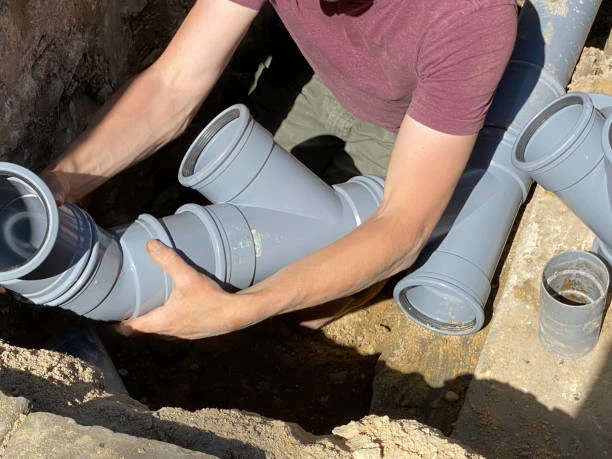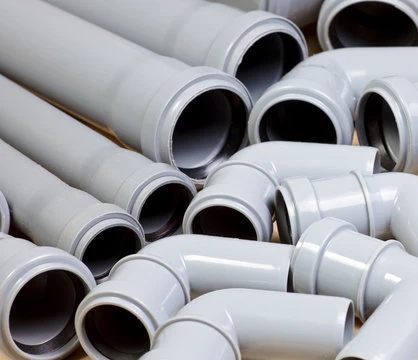Introduction: Radoszewski Returns to the Pipe Industry
Tony Radoszewski, the former CEO of the Plastic pipes business Association (PLASTICS), is making a notable return to the pipe industry. After years of leadership in the broader plastics sector, Radoszewski is now focused on driving innovation and growth in the plastic pipes industry. This transition underscores his continued commitment to advancing plastic manufacturing and the critical role plastic pipes play in modern infrastructure. In this article, we explore Radoszewski’s background, his vision for the future of plastic pipes, and how his expertise can impact the industry.
Radoszewski’s Leadership in the Plastic Pipes Business
Tony Radoszewski’s career in the plastics industry spans decades, during which he became a well-respected leader and advocate for the sector. As CEO of the Plastics Industry Association, Radoszewski played a key role in promoting the benefits of plastic materials across various industries. His work involved advancing sustainable practices, driving innovation, and educating the public and policymakers about the advantages of plastic materials, particularly in the context of infrastructure.
Key Achievements at Pipes Business
- Advocacy for Sustainability: Radoszewski helped lead efforts to promote recycling and sustainable plastic use across industries.
- Innovation Leadership: He spearheaded initiatives to encourage the development of new plastic products, particularly in infrastructure applications.
- Public Awareness Campaigns: Under his leadership, PLASTICS expanded its public relations efforts to highlight the value of plastics in modern society.
Radoszewski’s tenure at PLASTICS has left a lasting impact on the plastics industry, positioning him as a thought leader and advocate for material science and innovation.
Transition to the Plastic Pipes Business
Radoszewski’s return to the pipes business is a natural progression, given his deep understanding of plastics and their applications in infrastructure. Plastic pipes have been a central part of Radoszewski’s career, particularly during his time at PLASTICS. The transition to a more focused role in the plastic pipe industry gives him an opportunity to leverage his expertise in a rapidly growing sector that is essential to modern infrastructure development.
Why Plastic Pipes Matter
Plastic pipes have become a cornerstone of modern construction, plumbing, and industrial systems. Their benefits, including durability, corrosion resistance, and ease of installation, have made them the preferred choice for many applications. As the world continues to invest in infrastructure upgrades and new construction projects, the demand for high-quality plastic pipes continues to grow.
The Growing Role of Plastic Pipes Business in Infrastructure
Plastic pipes are increasingly being used for water supply, wastewater treatment, gas distribution, and industrial fluid transport. Their lightweight and cost-effective nature make them an attractive option for large-scale infrastructure projects. Moreover, plastic pipes can withstand the harsh conditions of underground installation, making them ideal for both urban and rural settings.
Radoszewski’s decision to re-enter the plastic pipe industry aligns with his belief in the transformative power of plastics in shaping the future of infrastructure.
Key Trends in the Plastic Pipes Business
The plastic pipes industry has evolved significantly over the past few decades. Several key trends are shaping the future of the industry, and Radoszewski’s deep industry knowledge puts him in a prime position to capitalize on these developments.
1. Increased Demand for Sustainable Solutions
Sustainability is at the forefront of many industries, including plastics. With growing environmental concerns, manufacturers are focusing on creating more sustainable plastic pipes. Innovations like recycled plastic pipes, energy-efficient production processes, and the reduction of carbon footprints are becoming more common.
- Recycled Materials: The use of recycled plastic in manufacturing pipes is increasing, helping to reduce waste and promote a circular economy.
- Eco-Friendly Production: Manufacturers are adopting cleaner production techniques to minimize energy consumption and reduce emissions.
2. Technological Advancements in Manufacturing
The plastic pipe manufacturing process has seen significant advancements in technology. New machinery, automation, and precision molding techniques have made it possible to produce higher-quality pipes more efficiently and cost-effectively. These innovations are driving increased production and better product consistency.
- Advanced Extrusion Technology: Modern extruders allow for greater precision in creating plastic pipes with consistent dimensions and strength.
- Smart Manufacturing: Automation and robotics are being integrated into production lines to reduce human error and increase production speed.
3. Expanding Applications of Plastic Pipes
Plastic pipes are now being used in a wider range of applications, including industrial processes, oil and gas transportation, and more complex water management systems. The flexibility, strength, and chemical resistance of plastic pipes make them an ideal solution for these specialized applications.
- Oil & Gas Pipelines: Plastic pipes are increasingly being used in the transportation of oil and gas, offering a lightweight and corrosion-resistant alternative to traditional metal pipes.
- Smart Water Systems: Advances in sensors and monitoring technologies are allowing for smarter water distribution systems, further enhancing the utility of plastic pipes.
4. International Growth and Expansion
The demand for plastic pipes is growing globally, particularly in developing regions where infrastructure development is booming. Emerging markets, especially in Asia, Latin America, and Africa, are seeing a rise in construction projects that require efficient, durable, and cost-effective piping solutions.
- Emerging Markets: Many developing countries are adopting plastic pipes for their water supply, sewerage, and gas distribution systems due to their low cost and ease of installation.
- Global Distribution Networks: The growth of global supply chains has allowed plastic pipe manufacturers to expand their reach, catering to international customers and large-scale projects.

Radoszewski’s Vision for the Plastic Pipes Business
With his extensive experience, Radoszewski brings a fresh perspective to the plastic pipe industry. His vision involves driving further innovation, improving sustainability, and enhancing the global adoption of plastic pipes. He believes that the plastic pipe industry has immense potential to contribute to building more resilient and sustainable infrastructure worldwide.
Promoting Innovation in Plastic Pipe Materials
Radoszewski plans to focus on developing new types of plastic pipe materials that are even more durable, efficient, and sustainable. These innovations could include pipes that are resistant to a wider range of chemicals, higher temperatures, or environmental conditions, further expanding their utility across industries.
Advancing Sustainability
Sustainability remains a core value for Radoszewski. He envisions an industry that prioritizes the use of recycled materials and energy-efficient production methods. By pushing for industry-wide sustainability practices, he aims to reduce the environmental footprint of plastic pipes while maintaining their superior performance.
Strengthening Industry Collaboration
Radoszewski’s leadership style emphasizes collaboration between manufacturers, regulators, and industry associations. By working together, these stakeholders can develop common standards, improve the supply chain, and drive the adoption of best practices. This collaborative approach will help ensure that the plastic pipe industry continues to grow in a way that benefits both the economy and the environment.
Challenges Facing the Plastic Pipes Business
While the plastic pipe industry has seen significant growth, it also faces some challenges. Radoszewski’s leadership will be crucial in overcoming these obstacles and positioning the industry for future success.
1. Regulatory Hurdles
The plastic pipe industry is subject to various regulations, including standards for materials, installation practices, and environmental impact. Navigating these regulations can be challenging, particularly as different regions have different requirements. Ensuring compliance while maintaining innovation is a delicate balancing act.
2. Public Perception of Plastic Pipes Business
Despite the benefits of plastic pipes, there remains some public skepticism about the environmental impact of plastic materials. Radoszewski will need to address these concerns by promoting the recycling efforts and sustainable practices that are becoming more widespread in the industry.
3. Supply Chain Issues
Global supply chain disruptions, particularly in the wake of the COVID-19 pandemic, have affected the availability of raw materials and the cost of production. Addressing supply chain vulnerabilities and ensuring a steady flow of high-quality raw materials will be key for the continued success of plastic pipe manufacturers.
Conclusion in Pipes Business
Tony Radoszewski’s return to the pipe industry marks an exciting new chapter in the development of plastic piping solutions. With his leadership experience and deep knowledge of the plastics sector, Radoszewski is well-positioned to drive innovation and growth in the plastic pipe industry. By focusing on sustainability, technological advancements, and industry collaboration, he will help shape the future of this essential sector.
The plastic pipe industry is poised for continued growth as global demand for reliable, durable, and sustainable piping solutions increases. With Radoszewski at the helm, the industry will undoubtedly benefit from his vision and expertise, helping to create more resilient and efficient infrastructure worldwide.
Frequently Asked Questions (FAQs)
- What is Tony Radoszewski’s background in the plastic industry?
Tony Radoszewski is the former CEO of the Plastics Industry Association, where he led efforts to promote innovation and sustainability in the plastics sector. - Why are plastic pipes important for modern infrastructure?
Plastic pipes are cost-effective, durable, resistant to corrosion, and easy to install, making them ideal for water, gas, and industrial piping systems. - What are some of the key trends in the plastic pipe industry?
Key trends include increasing demand for sustainable solutions, advancements in manufacturing technology, expanding applications, and global growth. - What challenges does the plastic pipe industry face?
Challenges include regulatory hurdles, public perception of plastics, and supply chain disruptions. - How can Tony Radoszewski impact the plastic pipe industry?
Radoszewski plans to drive innovation, promote sustainability, and encourage industry collaboration to ensure the continued growth and success of the plastic pipe industry.


















